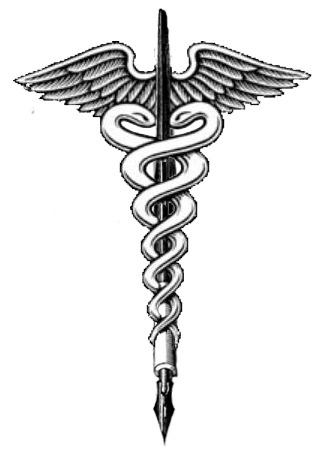|
Symptoms Visible and Invisible — by Julian Seifter, M.D.
I wrote After the Diagnosis to offer stories of patients living creatively with chronic illness, as well as personal insights gleaned from my decades of living with diabetes. But it's only since publication of the book that I've really come to understand the difference between an illness that's invisible and one that shows.
In the past year or two I've developed a significant tremor in my hand, which turns out not to be an "essential tremor" but Parkinson's disease. I sometimes feel stigmatized by this symptom, as though people are making the assumption that I'm too sick to manage not just my career but even the activities of daily living. It was this kind of stigma I tried to avoid for three decades, while I kept my diabetes a secret from almost everyone I knew. These days, when I give talks about the book, I begin with my tremor: I raise my hand above the podium and say, "Can everyone see this?," sometimes shaking the other hand just for good measure. Talking about, even joking about, what's visibly wrong makes me feel more at ease, but it also seems to relax other people. If I'm okay about it, so are they. The fact that people know I "have something" is even an opportunity to open up the discussion — to air the question of stigma and encourage people to be more candid about the symptoms that plague them.
I can also say that having lived my way around and through one diagnosis is helping me set my course as I begin to cope with a second one. Parkinson's is scary because it's another one of those "forever" things that will never go away; indeed, it's going to get worse, though how fast and to what degree remain uncertain. It's in the space of uncertainty that I've lived my life with diabetes, and I'm prepared to take charge of the "unknown" again. I've even felt paradoxically cheered by the diagnosis; now that the tremor has a name, I can take the right medicine, do the right exercises, eat and sleep right — actually improve my life and health, as I begin to do battle with the illness.
I like to think, when something is disappointing or goes wrong, don't just fix it, make it better than it ever was. A setback is an opportunity to improve things. (I know, this sounds like, "if life throws you a lemon, make lemonade." But truisms get that name because they're true.) My aim with this new diagnosis is to be healthier than I was before, and more willing than ever to try new things, go new places, seek out new directions. I'm going to welcome uncertainty an open space in which to live.
Julian Seifter, M.D., is one of the leading kidney specialists in the country. He is a professor at Harvard Medical School and chair of the Ethics Committee on Human Research at Brigham and Women’s Hospital in Boston.
This article first appeared at www.psychologytoday.com on November 21, 2010.
|
